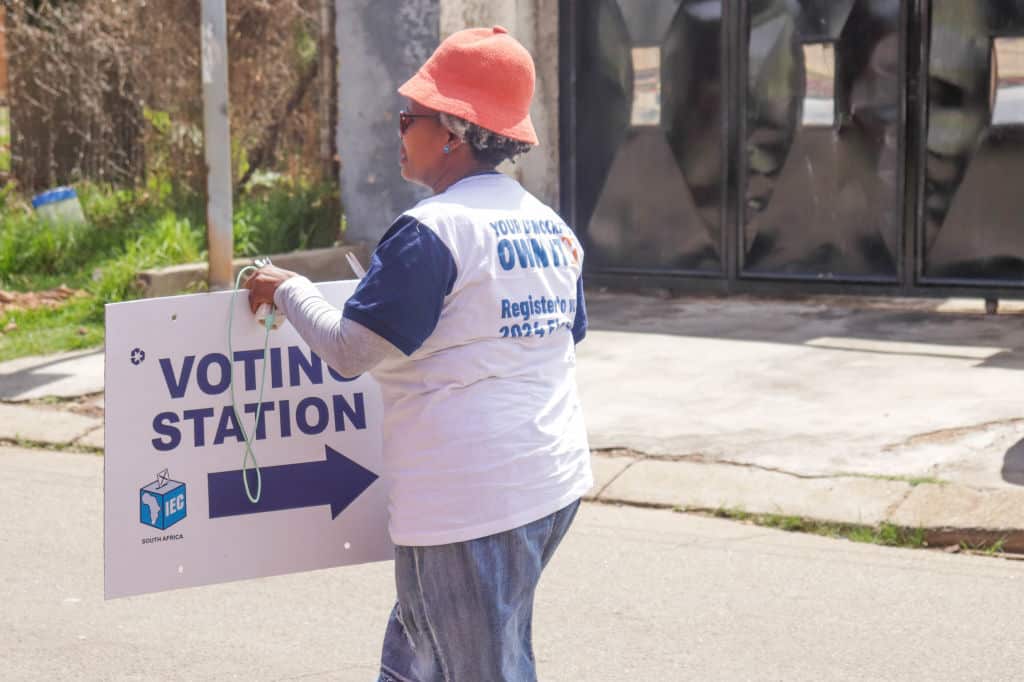South Africa is on the brink of a historic electoral shift as it prepares for the general elections set for May 29. President Cyril Ramaphosa’s announcement of the election date, coinciding with the country’s 30th anniversary of democracy, marks a critical juncture for the African National Congress (ANC) and the nation’s evolving political landscape.
The ANC, having dominated South African politics since the end of apartheid in 1994, faces a significant test as polls suggest a decline in its popularity among voters. Marisa Lourenço, a seasoned political and risk analyst, points out to FORBES AFRICA, “Even if the ANC drops below 50% of the total vote share, it will almost certainly remain the largest party in parliament.” This potential shift towards coalition governments at the national level raises questions about service delivery and governance stability.
Lourenço warns of the challenges posed by coalition politics, citing the local level’s chaos as a possible precursor to what could unfold nationally. “But I don’t expect things to be quite so bad at the national level,” she adds, suggesting that the ideological similarities between the ANC and the Democratic Alliance (DA) might offer a silver lining for governance stability.
The recent compulsory release of documents related to the ANC’s cadre deployment policy has stirred controversy, revealing the party’s strategy for placing political appointees across government levels. Lourenço argues that the focus should be on the message, not the messenger, as it exposes the depths of kleptocracy within South Africa’s judiciary. “Proof of the attempt to capture the judiciary is the single largest event post-1994 that indicates that not all is well in democratic South Africa,” she asserts, questioning the readiness of South Africans to confront these revelations.
The timing of Ramaphosa’s election date announcement, deemed unusual by some due to its proximity to the budget speech, is strategic according to Lourenço. She believes it served to distract from the cadre deployment controversy and focus on the importance of voting, amidst the ANC’s attempts to leverage its liberation movement legacy to maintain support.
Loading...
Furthermore, the emergence of new political parties, including the MK party endorsed by former President Jacob Zuma, introduces additional dynamics into the election. However, Lourenço views Zuma’s influence as limited, particularly on a national scale. “His message resonates in KwaZulu-Natal, but he doesn’t have a wider national pull,” she explains, downplaying the potential impact of Zuma’s political maneuvers on the broader election outcome.
As South Africa approaches these pivotal elections, the ANC’s dominance is challenged not only by internal factionalism and national issues such as power cuts and unemployment but also by the evolving political landscape marked by the emergence of new parties and coalition possibilities. The public’s response to these developments, informed by statements from political figures like Ramaphosa and analyses from experts like Lourenço, will shape the future of South Africa’s democracy and governance.
Reflecting on the 30th anniversary of democracy, this election is not just a procedural event but a moment of introspection for the nation. The ANC’s historical significance and its role in the anti-apartheid movement have afforded it a longstanding majority. However, the current political climate, characterized by public dissatisfaction with service delivery and economic challenges, suggests a potential reconfiguration of power dynamics.
Coalition governance, while a new concept at the national level, offers a glimpse into the possible future of South African politics. The experiences at the local government level, though mixed, highlight the complexities of shared governance. Analyst Lourenço emphasizes that while coalitions can introduce policy inertia, the ideological proximity of the ANC and DA may mitigate some governance risks. “The two largest parties in parliament – at the moment, and almost certainly after the upcoming elections – are the ANC and the DA, and ideologically they are very similar, which is a plus for overall stability in governance,” she explains.
Public statements from political leaders like Ramaphosa, urging democratic participation and peaceful campaigning, alongside analyses from experts, highlight the significance of these elections not just for governance but for the very fabric of South African democracy. “International experience shows that employees with critical skills contribute to improved productivity, enhanced innovation,” Ramaphosa noted in his newsletter, signaling the strategic importance of this electoral moment.
As South Africa stands at this crossroads, the 2024 elections offer a chance to reflect on the journey since the end of apartheid, evaluate the successes and shortcomings of the ANC’s governance, and decide on the path forward. The potential for coalition governments, the impact of new political parties, and the electorate’s response to current challenges will not only determine the immediate future of the country but also set the tone for South Africa’s democratic and governance landscape for years to come.
Loading...
